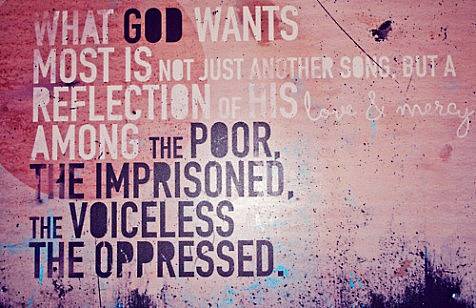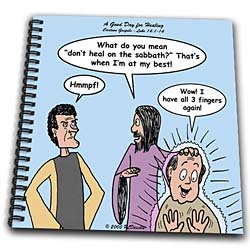Situations like this were not an uncommon
occurrence in my upbringing:
The church ladies were serving up the dishes at
the potluck. I got to the section that had potato salad and I pulled my plate
back. “You don’t want any potato salad?” Mrs. Irwin asks.
“No, I hate potato salad. Blahh,” I responded.
It was at this point I would feel a firm hand on
my shoulder, or a quick tap on the back of my head. “Son….MANNNERS”
“No thank you, Mrs. Irwin. I need to save room for
your yummy chicken casserole,” I would respond.
“I am sorry,” my mom would say, “you try and teach
them but….”
“I completely understand,” Mrs. Irwin would say,
“I raised four of my own.”
Table manners. Keep your elbows off the table.
Chew with mouth closed. Don’t talk with your mouth full. Ask to be excused from
the table. Eat what you are served. Ask for someone to pass the food, don’t
lunge across the table to get it. At least not in polite company.
Table manners were a little more lax when it came
to Thanksgiving dinners in Alaska in high school. Someone would pray for the
meal. At that point, one of the few meals that were prayed over. Perhaps
everyone would share something they are thankful for. Then there was an
announcement, usually from my uncle, which said something like this, “Get while
the getting is good, because in this family we wait for one another like one
pig waits for another.”
At this point people angled and made strategic
alliances to get the food that they wanted in the order that they wanted it.
Rarely was there a shortfall of food on holidays. There was usually at least a
week’s worth of leftovers. But there was still was an ethic to suspend proper
table manners for the first part of the meal in an attempt to make an
aggressive move toward the grub you wanted. In the process there was lots of
joy, laughter, and light-hearted teasing as we all ate.

Around that period of time, there is a story about
a lack of table manners that is still in dispute to this day. It has to do with
eating moose steak. It was a particularly good piece of meat as I remember, and
I am not usually a steak guy. They had been cut into little strips and
flavored. I had grabbed the last piece of meat before my cousin Casey. I was
taunting him. Taking little bites of this strip of steak, moaning, talking
about how good it was. So my Aunt Tammy came up behind me, grabbed my fork,
pulled the remainder of the meat away from me (half of it was in my mouth), and
ate herself. She denies this ever happened. I maintain that it did happen.
And when I got older, and was a youth pastor, I
discovered a different kind of table manners among middle school teens. The
girls, in some strange cooperative venture that I still have yet to understand,
would unpack their lunches, with gobs of good food, and then share the food in
some cooperative venture. Easily sharing with friends, freely grabbing a bite
from a friend’s plate.
The boys on the other hand, created a little
fortress around their food with their arms. They had to protect their meal from
interlopers. Because if someone saw something they liked, they may dive in and
grab a friends food without asking and eat it before they could do something.
It was very primal.
Every culture has table manners. The table manners
are not arbitrary. They are “relationship rules”, designed to help facilitate
positive relationships and good feelings among those gathered around the table.
They are also designed to create boundaries for behavior among the people who
are gathered around the table, and those who are not. There are a lot of rules
and traditions about the table.
In the parable we read, Jesus is invited to the
home of a prominent Pharisee for a meal. This was a meal full of both religious
and political import. The Pharisees were the religious rulers of Israel,
spearheading a moral reform movement among the people. They tended to focus on
following all the rules, and following their rules instead of focusing on
loving relationships with God and others, however, and this put them in a
conflict with Jesus.
At one point, Jesus begins to teach the people at
the table. His teaching challenges and confronts them and the prejudices.
The first teaching has to do with their seating
arrangements. He was noticing how the guests at the meal were jockeying for
position with one another so that they could sit in the place of highest honor.

He reminds them of the ancient teaching, the
teaching that goes back even to the book of Proverbs. He does so by telling a
thinly veiled parable of attending a wedding feast. In The time of coming to
the table is a time to be humble. Don’t jockey for position, trying to take the
place of honor. That could really get you in trouble. Because if you start
taking a seat of honor, you might be asked by the usher to move to the back.
And you will be drug back to the cheap seats in front of everyone. Instead,
take a position of humility, in the back. Then if someone thinks you need to be
in a position of greater honor, you will be brought up to that position in
front of everyone. Then people will understand that you are both humble and
honorable. Jesus then says the key point: Those who exalt themselves will be
humbled, and those who humble themselves will be exalted.
After he tells this story, Jesus launches into a
teaching that builds upon what he has just said, this time from the perspective
of the host of the party. He says when you throw a party, don’t just invite the
folks that can do things for you, or people that are a part of the
well-respected cool crowd. Instead, invite those folks that nobody included at
that time to a fancy party. The poor, the crippled, the blind, the lame. The
folks who can’t repay your invitation to your party to a party at their
place…because they cannot afford a party at all. Invite the folks that are
otherwise rejected, lonely, pushed aside, neglected. Invite those folks to your
party that nobody else can put up with, that nobody else wants to love or deal
with. That is what God wants you to do.

Jesus said earlier in Luke’s gospel, “I have
not come to call the righteous, but sinners to repentance.” (Luke 5:32). He
says that he has come to seek and save the lost (Luke 15). In this passage and
others it is clear, Jesus intends to create a church that is a hospital for
sinners, not a monument for the saints.
You see, the Pharisees of Jesus’ day had many of their moral
ideas right. But they had a tin man’s faith. Jesus was saying to them, “If you
only had a heart, Pharisees, you would see that the gospel is about justice and
compassion. Even more it is about redemption and renewal. It is about setting
right the broken things in the world. It is about healing the broken. It is
about helping sinners find faith and hope, life and love.
The Pharisees of that day forgot what we often forget as
well. That the church is not simply a monument to the saints, or a place for
good people to do good things. The church is a place where people who
desperately need the life-changing, life-transforming healing power of Jesus can
participate in the way of Jesus and find their life is renewed, transformed and
changed by God’s grace.
There was a title of a book that I loved a few years back. It
was a book about the church, and ideas about leading churches and leading
people to faith in Jesus Christ. The book was called NO PERFECT PEOPLE ALLOWED
and then the subheading in small letters said, “all others welcome”.
I have often dreamed of having that on a banner on the front
of a church I lead: NO PERFECT PEOPLE ALLOWED: all others welcome. I would love
to have this is NEON or something because it tells what the mission of the
church is, a mission that we as church members and participants often forget.
The church is not about perfect people huddling up in order
to hide from the rest of the world. The church is about being in the world to
heal the world. Especially to heal the world from its sin-sickness, its
lonliness, its aimlessness, its lostness.
This week, as we remember Dr. Martin Luther King Jr.’s I have
a dream sermon, and it was a sermon, I think of a similar dream for God’s
church. That God’s church would have open doors to addicts and refugees, the
disabled and the disenfranchised, those that don’t seem to dress the right way,
or smell the right way, or who don’t know what the ‘churchy’ thing to say is at
the right time.
The church is not for people who think they have everything
together and don’t have any struggles. The church is for people like you and I
that sin and we know it. We need Jesus. We need Jesus in our lives to help us
to stop being greedy and selfish, to stop from being bitter and mean. We need
to be transformed. Because if we are left as we are, we are sunk.
And so we come here today, seeking hope. Seeking knowledge.
Seeking support. Seeking to know that we are not alone in this world, with just
us and our sin, but that God is with us. Restoring us. Reviving us. Redeeming
us.
The table manners of the kingdom is that all are welcome, and
none should be denied. The table manners of the kingdom tell us that we should
not seek to be served but to serve. The call of the kingdom tells us that we
are not supposed to build an institution by human standards, but that we are to
be a part of the movement of the Holy Spirit that takes this old, broken world
and makes it into a new world.
And, in the process, we are to acknowledge that we are among
those who need to be rescued from sin. We are among those who need to be made
whole by the savior. We are among those who need God to make us into a new
creation. That it is not just them that need a redeemer, but it is me, Clint
Walker, and you as well.
So won’t you come to Jesus today. Won’t you name yourself
among the imperfect? Won’t you be made new? And won’t you join the church
proclaiming to the world that this church, UNITED CHURCHES, is a healing place
for wonderful imperfect folks like yourselves. I hope you will.


























